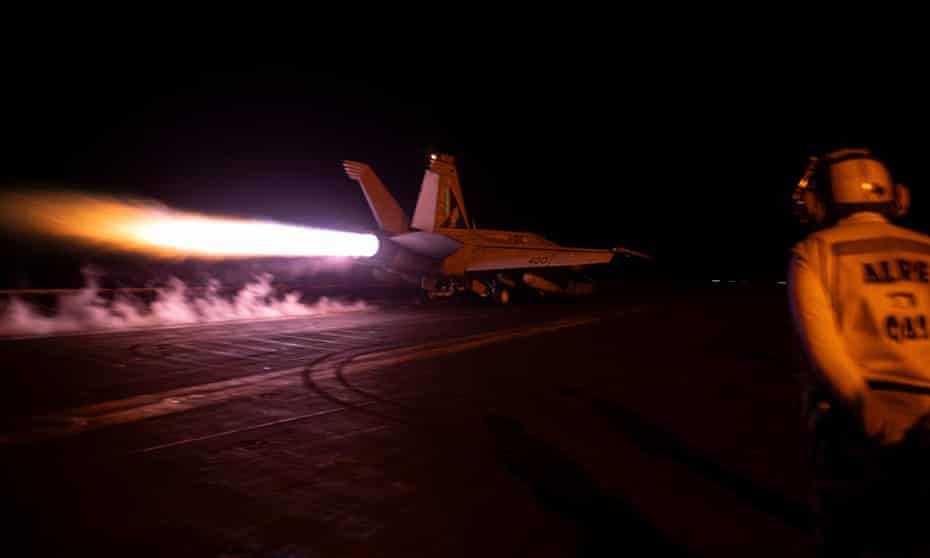
US Warns of Further Action Following Airstrikes on Iran-Linked Militias
In a press statement on Sunday, White House National Security Adviser Jake Sullivan asserted that the recent US airstrikes targeting Iranian-backed militias in Iraq and Syria were just the initial phase of a prolonged response.
The strikes, carried out on Friday night and hitting 85 sites, were in retaliation for the killing of three US soldiers. Sullivan emphasized that these actions signaled the start, not the conclusion, of the US response, with more steps planned to send a clear message of forceful retaliation when American forces or citizens are attacked.
During an interview on NBC, Sullivan declined to rule out the possibility of future strikes on Iranian soil, indicating a potential escalation that the US had previously sought to avoid.
In the aftermath, Iraqi government figures, closely aligned with Iran, called for the withdrawal of US troops, claiming that the situation was pushing the region to a dangerous precipice.
The United Nations Security Council is set to convene an emergency session on Monday to discuss the US strikes.
The US is expected to argue that these actions were taken in self-defense and with the consent of the Iraqi government, which requested the presence of US troops.
US Secretary of State Antony Blinken, currently on his fifth trip to the region, aims to negotiate a hostage release deal and address impediments to aid reaching Gaza amid the ongoing conflict. Meanwhile, Iran issued a warning against any potential move targeting its ship, Behshad, stationed in the Red Sea, accused by the US of providing surveillance for Houthi onshore cruise-missile attacks.
The latest round of airstrikes in Yemen, targeting Houthi positions, saw support from six countries, including the US and the UK. UK Prime Minister Rishi Sunak defended the strikes, emphasizing their self-defense nature and the commitment to protecting British lives and interests.
The broader geopolitical context underscores a strategic conflict between the US, attempting to exert pressure on Tehran’s regional allies, and Iran, supporting these forces to influence the US presence in the region. Despite the tensions, both parties seem keen to avoid direct conflict, with Tehran setting a red line against any direct attack on Iranian soil.US Defense Secretary Lloyd Austin conveyed a collective message to the Houthis, warning of further consequences if they continue their illegal attacks on international shipping.
The UK counterpart, Grant Shapps, justified the strikes as a response to Houthi attacks on commercial and military vessels, emphasizing the need to protect innocent lives and preserve freedom of navigation.
The Houthis, in response, vowed consequences for the strikes, highlighting the ongoing challenges in the region. Military and diplomatic experts are divided on the impact of the strikes on the Houthis’ military and political strength, as the conflict unfolds parallel to the US retaliation for attacks on its military bases in the region.Credit: The guardian
